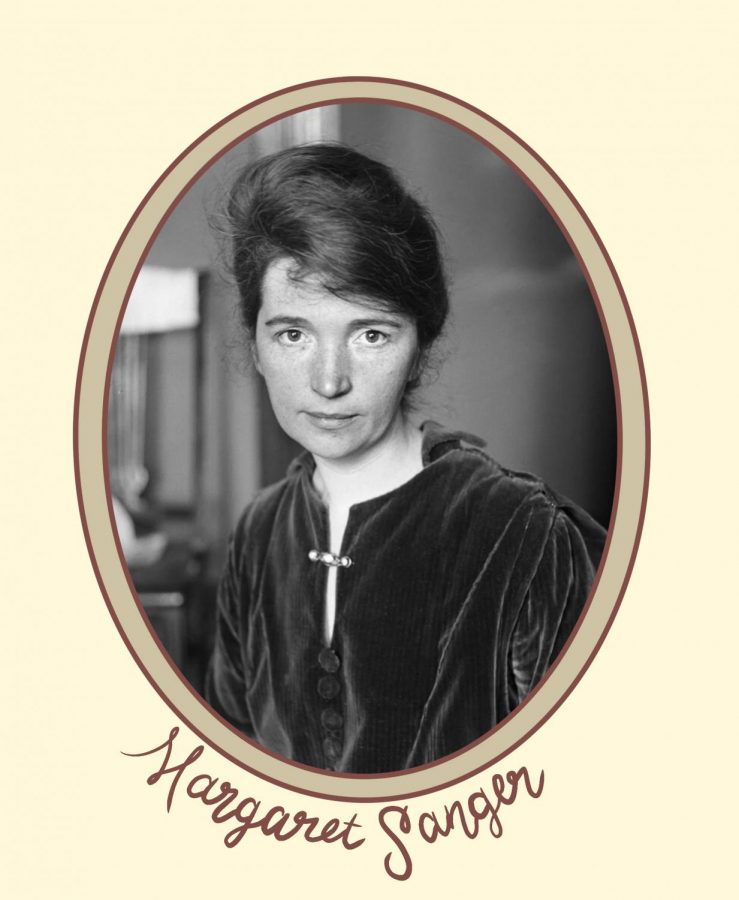Margaret Sanger Does Not Deserve a Place in Women’s History Month
A brief overview of the Planned Parenthood’s founder’s views on race, eugenics, and ability
March 1 marked the start of Women’s History Month. As a feminist, I keep two ideals close to my heart: A woman’s right to choose and the necessity of gender equality. I will always defend a woman’s right to have an abortion, and I will always support making reproductive health care affordable for everyone. Nothing will ever change my mind on these things. But something I will never again support or celebrate is the life of Margaret Sanger, one of the founders of Planned Parenthood.
Sanger receives mixed partisan reviews; her opposers consider her a “baby-killer,” while her supporters praise her for eliminating the taboo on birth control and kick-starting a revolution that resulted in women finally having a say over their own bodies. While I believe that resorting to name-calling is unnecessary, I also firmly believe that nobody, regardless of what your views on abortion are, should celebrate this woman. This is because Sanger was an outspoken eugenicist, a fact which a shocking amount of people are not aware of. Aside from supporting eugenics, Sanger was openly racist, ableist and used her rhetoric to decide who was “fit” or “unfit” to have children.
Everything she stood for is fundamentally opposed to feminism. While on the surface it appears that Sanger fought hard for women’s rights and equality, a deep dive into some of her personal narratives reveal shocking truths that demonstrate otherwise. In her infamous essay titled “A Better Race Through Birth Control,” she emphasized the importance of birth control use to improve the “quality of humanity,” thereby justifying her views on eugenics. In this article she went on to say: “It is reasonable to assume that women of subnormal mentality, however lacking they may be in vision and altruism, would prefer to avoid the pain and responsibilities of procreation, if the satisfaction of sex could be divorced from reproduction. Given Birth Control, the unfit will voluntarily eliminate their kind.”
In a 1932 article titled “My Way To Peace,” Sanger discussed her seven criteria for what she deemed a “perfect” society. These ideas were centered around increasing the intelligence of the American population. She referred to immigrants as people who are “detrimental to the stamina of the race,” adding that they must be kept out of society. She went on to say that most of these people were “feeble-minded, idiots, morons, insane, syphilitic, epileptic, criminal, and professional prostitutes.” Other heavily emphasized ideas in her essay included enacting rigid policies of sterilization and segregation so that “questionable” traits would not be transmitted to offspring, as well as confining the “unfit” to separate homesteads and farms where they would spend the rest of their lives if they chose to not be sterilized. Her final proposition was to force the remaining fifteen or twenty million people of the “unfit population” into soldiers or the military to, in her words, “defend the unborn against their own disabilities.”
Sanger’s awful views don’t end there. After attending a KKK rally in Silverlake New Jersey in 1926, she recounted the experience in her autobiography: “I accepted an invitation to talk to the women’s branch of the Ku Klux Klan…I was escorted to the platform, was introduced, and began to speak…In the end, through simple illustrations I believed I had accomplished my purpose. A dozen invitations to speak to similar groups were proffered.” One can wonder: what on earth did she say to invoke such positive reactions from such a hateful group of people?
In 1939, Sanger launched an initiative called the Negro Project with the intention of introducing birth control to impoverished Black communities in the South and conducting research. Physician Clarence Gamble, who shared similar eugenic views to Sanger, overlooked most of these projects. Some argue that these birth control projects were designed to show that contraceptive clinics could be successfully implemented throughout the United States. Shortly after the launch of the Negro Project, Sanger started a campaign with Mary Woodward Reinhardt to educate African-American women in the South about contraception. Sanger, Reinhardt and Sanger’s secretary, Florence Rose, then drafted an essay titled “Birth Control and the Negro,” sneakily using language that invoked positive reactions from eugenicists and social progressives alike. According to the report, “African Americans presented the great problem of the South,” as they were the group with “the greatest economic, health and social problems.” The authors went on to label African Americans as largely illiterate and a population that “still breeds carelessly and disastrously.” In a letter to Gamble in 1939, Sanger wrote: “We do not want word to go out that we want to exterminate the Negro population and the minister is the man who can straighten out that idea if it ever occurs to any of their more rebellious members.” This passage has brought Sanger immense backlash, with realizations that all of this work she had been doing in the South may have been to eliminate or reduce America’s black population. Civil rights activist Angela Davis included Sanger’s incriminating quote in her infamous novel “Women, Race and Class,” as she emphasized that Sanger’s projects “confirmed the ideological victory of the racism associated with eugenic ideas.”Sanger’s legacy was enough for a Planned Parenthood branch to remove her name from one of their Manhattan clinics. In a statement, Senior Vice President of Communications and Culture for Planned Parenthood Federation of America briefly said: “Planned Parenthood, like many other organizations that have existed for a century or more, is reckoning with our history, and working to address historical inequities to better serve patients and our mission.” The Manhattan branch acknowledging the disturbing values Planned Parenthood was built on is a step in the right direction, but additional work must be done to hold the organization fully accountable. Many are still unaware of the horrendous values Margaret Sanger espoused, and as a result people really need to dig for the truth. Planned Parenthood may no longer have eugenics and racism as part of its mission, but knowing the history and the origins of the organization is extremely important for educating oneself about how prominent racism and eugenics were in the United States. Margaret Sanger is not a “queen,” nor an “icon” like I have been seeing so many people call her. She is a racist eugenicist who grafted her hatred onto the lives of hundreds of thousands of unsuspecting people. She should never, under any circumstances, be praised or celebrated.
Your donation will support the student journalists of Saint Louis University. Your contribution will help us cover our annual website hosting costs.











